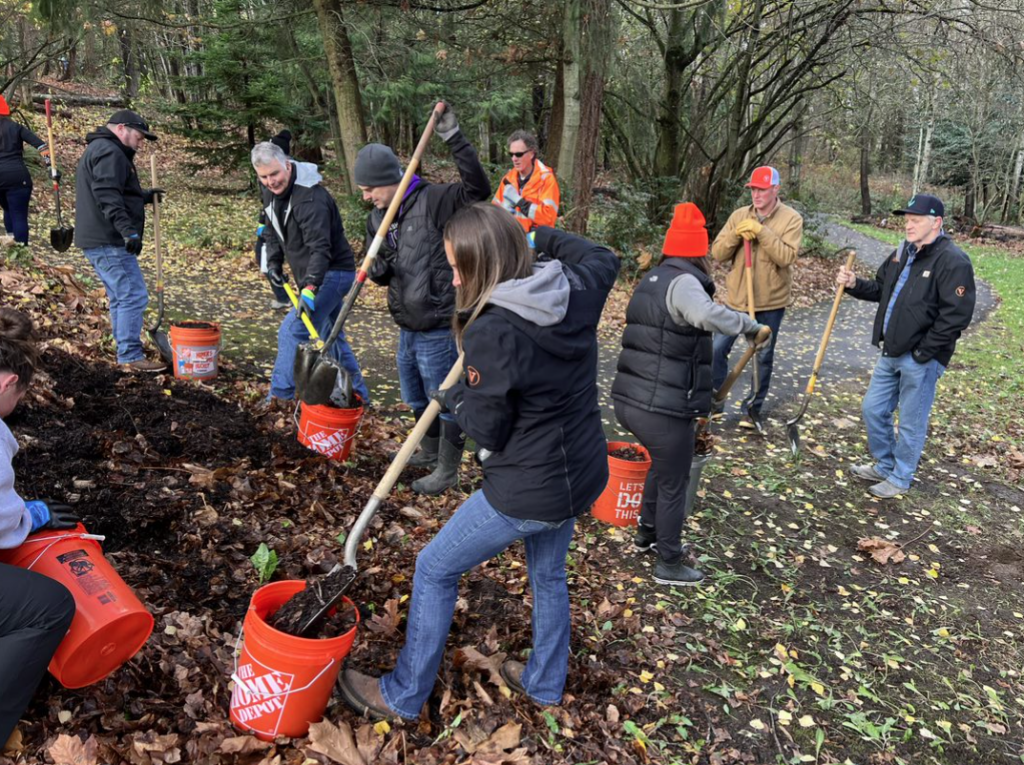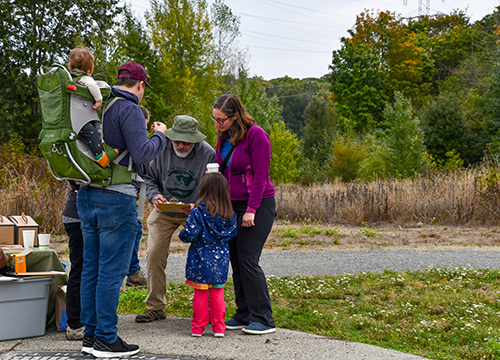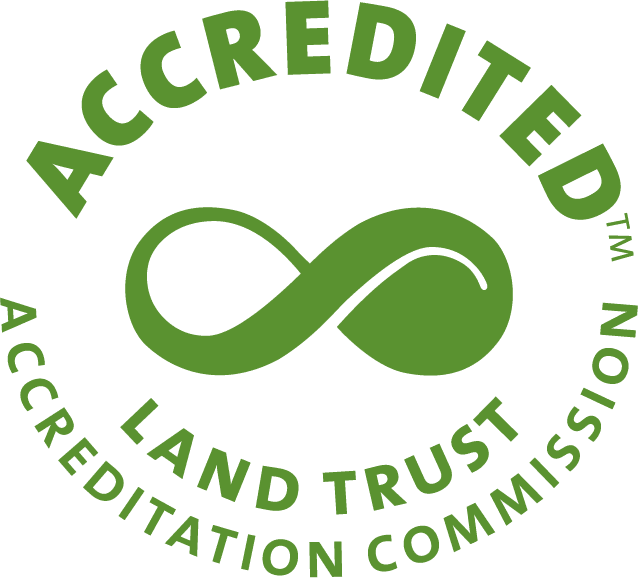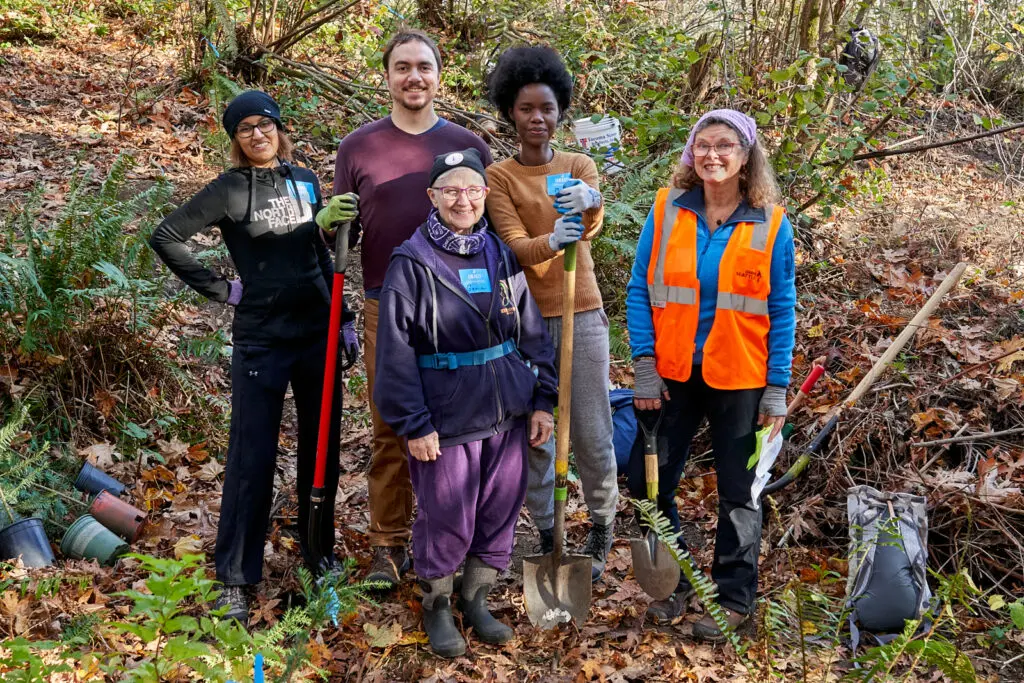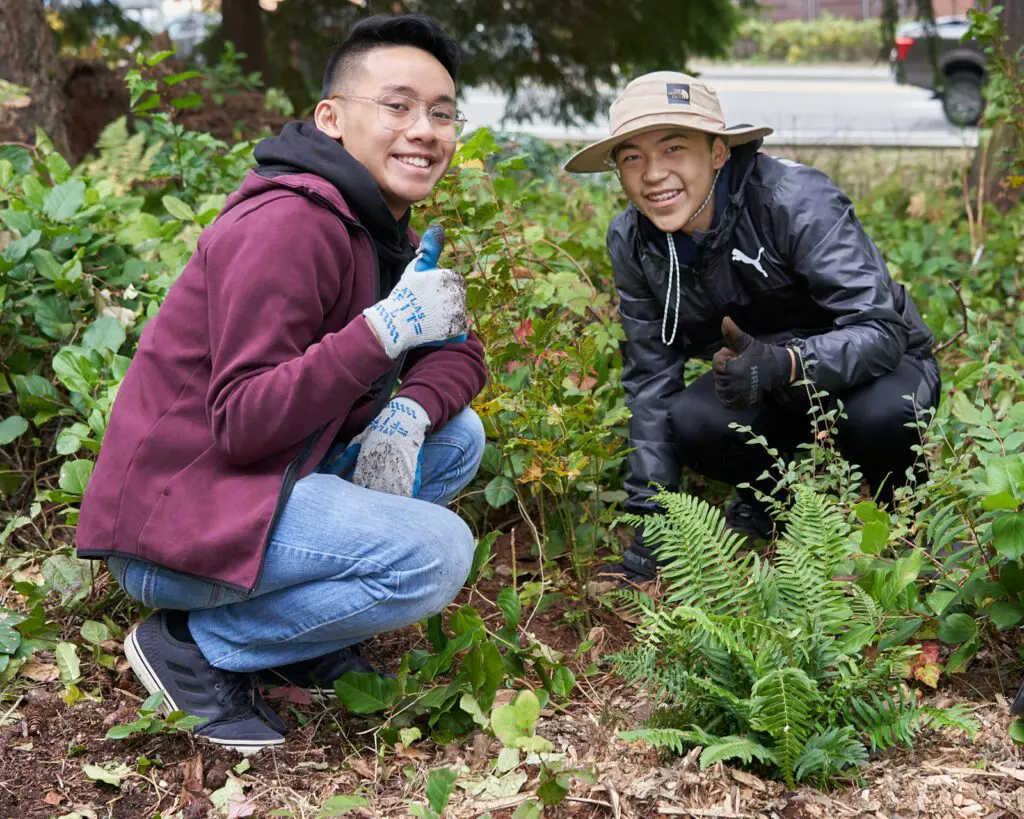Written by Kelsey Bray
Several months ago, Forterra employees participated in a three-part webinar series hosted by Washington Conservation Action called Building Effective Partnerships Between Environmental Groups and Tribal Nations, which provided training on how to build trust with Tribal nations and create long-term partnerships. We are grateful for the leadership of Alyssa Macy and Washington Conservation Action to support our learning as an allied organization.
As a continuation of this work, in late April 2023, Forterra staff and board had the opportunity to participate in a two-day intensive training on Working with Tribal Sovereign Governments. It was hosted by the Tulalip Tribes and provided by the U.S. Department of Agriculture (USDA), with collaboration by Forterra Chief People, Culture and Technology Officer Rachel Valdez, Blackfeet Nation. The training covered a range of topics including Tribal respect, history, culture and conservation work.
On the first day, USDA Washington State Conservationist Roylene Comes at Night, FPAC-NRCS, Blackfeet Nation, focused on how nonprofits can create effective and long-term partnerships with Tribes. Key steps include respect for and understanding of Indigenous cultures.
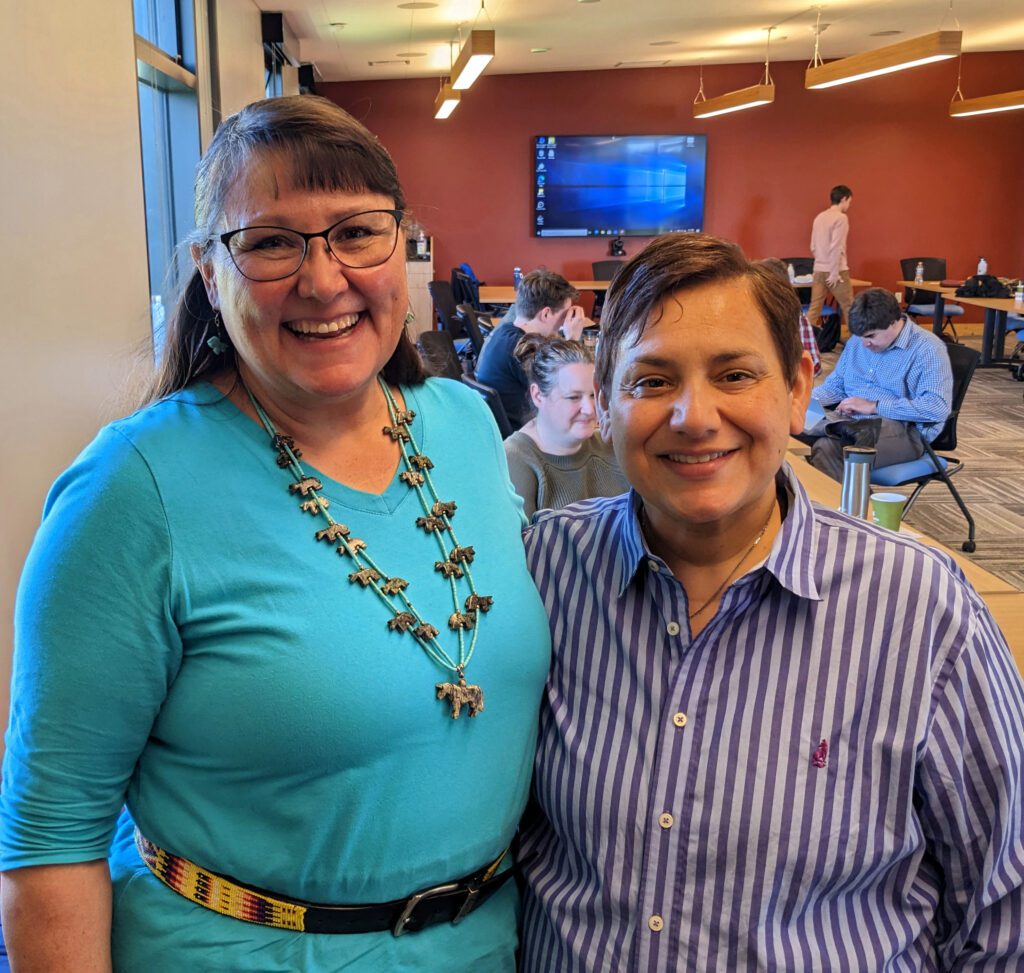
In a presentation called “Nine Voices,” Roylene provided guidance on how people from Indigenous backgrounds may approach situations differently based on how they were raised, their family traditions, where they grew up, what school they attended, etc. She also presented the ongoing impacts of colonization and structural racism that Native Americans face as they work toward happy, healthy and resilient lives.
As an example of the ongoing ramifications of history on Tribes today, we learned about boarding schools, which were set up to assimilate Indian children and force them to reject their culture. Children suffered horrific abuse, and many never came home. Today, families are still dealing with the trauma caused by boarding schools. However, these institutions failed to destroy Native American culture – instead, they fueled the drive for Tribal self-determination in the late 20th century.
Elder Greig Arnold, Makah, elevated the importance of understanding each Tribe’s unique history, culture and government before working with them on projects. For instance, he spoke about how whales are central to the Makah culture, and how they’ve had to fight for their right to whale so they can eat, as outlined in the Treaty of Neah Bay. Greig also offered advice on how to approach working with Tribes, including letting Tribes know about projects early in the process, being honest about your intentions and working on their timelines.
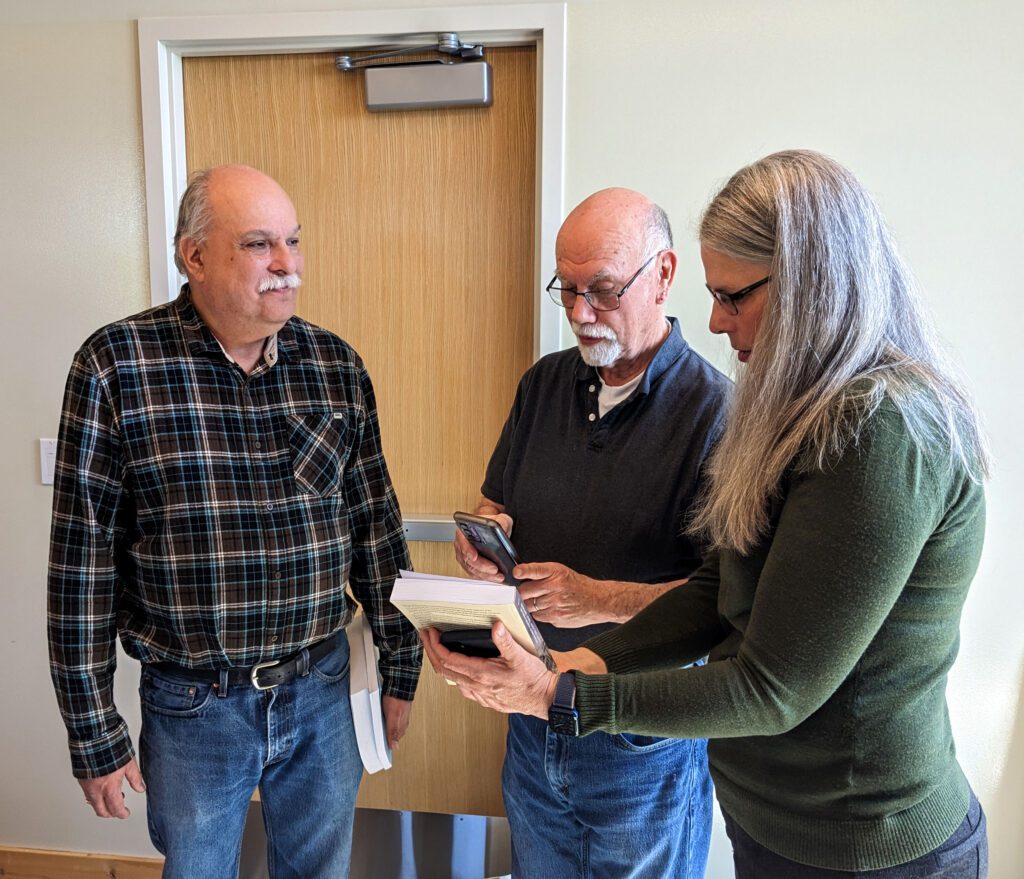

A great example of a successful partnership is Qualco Energy, which Elder Daryl Williams, Tulalip, spoke about at the training. He told us about how the partnership started and what they have planned for the future. Tulalip, together with Northwest Chinook Recovery and Werkhoven Dairy, operates an anaerobic digester that turns animal waste and other pollutants into renewable energy. This project keeps the surrounding air and water clean, protects salmon, provides compost and helps the dairy continue to operate.
The second day of the training focused on legal issues, including treaty rights and land acquisition. Tulalip Tribal Attorney Rhylee Marchand, Colville, provided a review of the relationship between Tribes and non-Indians from the colonial era to the present day.
She then discussed landmark federal cases and the precedent they set for other legal action. From there, Forterra staff split into groups to research topics of particular relevance to our work. The groups then shared their learnings on how Traditional Ecological Knowledge affects federal decision making, as well as other topics like the Culvert Case and the Boldt Decision, which re-affirmed the rights of Tribes in Washington to co-manage and continue to harvest salmon and other fish according to treaties with the U.S. government.
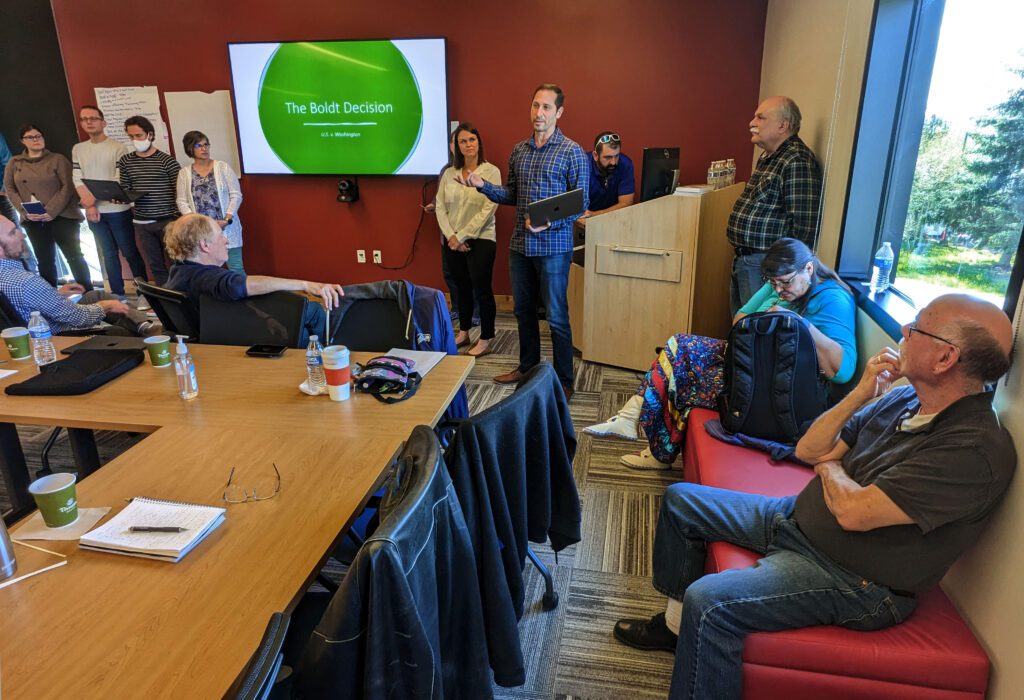

Why this training is important
In the fall of 2022, the Snoqualmie Indian Tribe raised concerns about the content and process undertaken by Forterra in submitting a complex federal grant proposal. In response, Forterra’s board commissioned a third-party review of the grant proposal and process. The report found that the grant process was delivered in good faith and driven by Forterra’s mission, but that our interactions with the Snoqualmie Indian Tribe did not demonstrate sufficient respect for the Tribe’s status as a sovereign government.
The report concluded with recommendations for improving Forterra’s practices, including improving our grant processes and taking steps to ensure sovereign Tribal governments are empowered with free, prior and informed consent. As an outcome, Forterra has implemented all of the report recommendations and apologized to the Snoqualmie Tribe.
It’s crucial that Forterra and other nonprofits engage with Tribes to gain guidance and ensure that our actions respect the rights of Indigenous peoples who have been here since time immemorial. From a mission perspective, there are rich opportunities to deepen and strengthen the impact our environmental conservation and restoration work by engaging with Tribes as guides and partners.
The webinar series and training are already informing the way our organization operates. Forterra Vice President of Advancement Anne Baunach said she has committed to making sure that she listens far more than she talks in meetings because of what Greig said during the training, “If you are going to work with Tribes, listening is the most important thing.” She also understands that Tribes work by consensus and require a motion or resolution to fully commit, so going forward she will allocate time to allow for Tribal governance procedures and to ensure she understands what has specifically been approved by Tribal leadership.
“I learned so much from the training – I believe it is one of the most impactful trainings that I have been part of in my 30+ year work history,” she said.
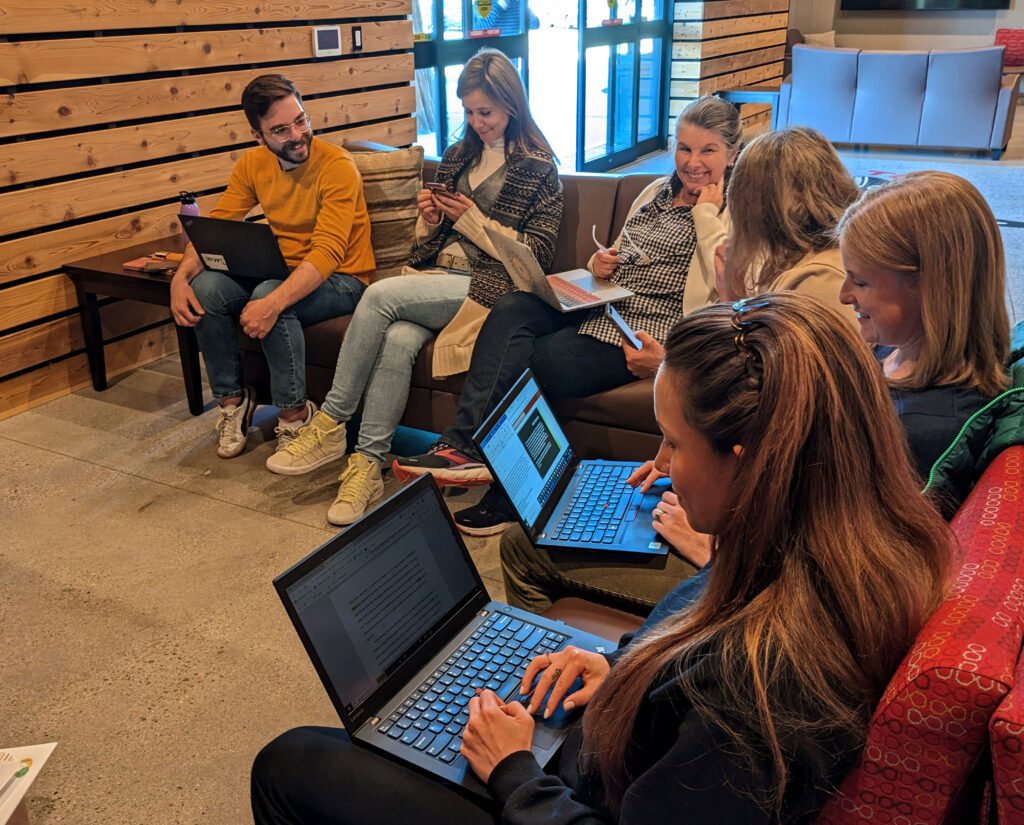

Forterra Conservation Associate Jacob Childers appreciated how the instructors put everything in context and made sure we understood the full story. One example was the appalling history of boarding schools and how they tried to bury Native culture, which still affects Tribal decision making today. Because of the guidance from Roylene, Greig, Daryl and Rhylee, he now feels better equipped to work with Tribal nations. He also plans to make the same effort as Anne to listen more and talk less.
“Tribes are considering how future generations will be impacted by each decision, so Tribal elders listen and think for a long time before making a decision and speaking,” Jacob said. “I’m trying to follow their example of choosing my words with care, thinking more of the future and not rushing to decisions. That’s something I will try to apply to both my personal life and the work I do at Forterra.”
How this affects Forterra’s work
Forterra will be applying several lessons from this training to work going forward.
- Research – We learned that each Tribe has unique history, traditions and governance. Before reaching out, we are committed to doing our own homework to review Treaties, constitutions and leadership. We will seek guidance while also respecting their boundaries on information sharing. We will strive to not make assumptions about areas of concern, about who has decision-making authority or what their processes are.
- Timing – Roylene, Greig and Daryl all emphasized that Tribes often work on different schedules than other government agencies and nonprofits. So, while groups can go to them with a timeline, that may not work for them. For Forterra, this means letting Tribes know about projects early in the process and being willing to adjust our timelines.
- Communication – All of these processes will require clear, early and frequent communication. Going forward, we will seek to maintain contact with Tribes and to find effective ways to share information and thinking in ways that may foster trust and understanding.
This guidance is essential to Forterra’s mission, as we frequently work with Tribes on projects, including landscape-scale conservation in the Chehalis Basin and Port Gamble Forest Heritage Park.
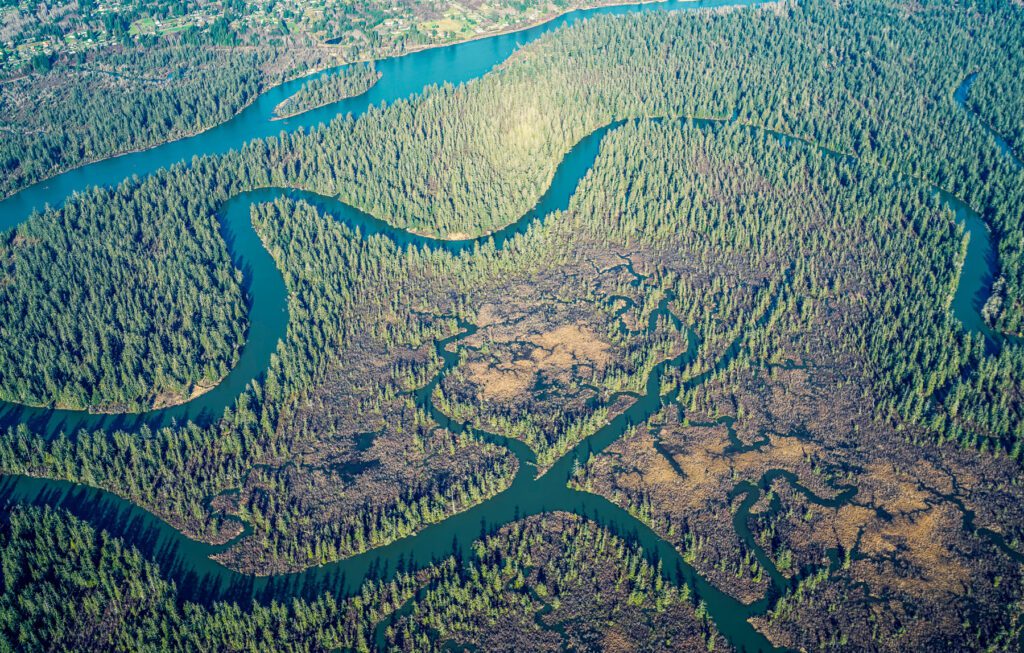

We are grateful to Roylene, Greig, Daryl and Rhylee for so generously sharing their expertise, viewpoints and lived experiences. We are committed to incorporating our recent learnings into creating effective and long-lasting working relationships with sovereign Tribal governments as we move forward.
